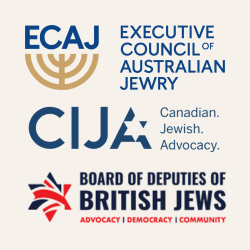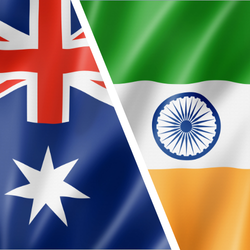Address to Sydney Jewish Museum Reading of the Names
11 September 2016
When the awful truth about the Nazi death camps was first publicised in newsreels and photographs at the end of World War II, an incredulous world reacted with profound shock and revulsion. Ghastly images of piled-up corpses and emaciated survivors were seared into the consciousness of civilised people everywhere, an inescapable reminder of humanity’s seemingly limitless capacity for evil.
The series of trials of Nazi war criminals at Nuremberg between 1945 and 1949 provided volumes of transcript of eye- witness testimony and of documentary evidence of the details of Nazi atrocities: the round-ups and ghetto-ization of entire Jewish communities; the ruthless expropriation of their assets; the sadistic tortures; the mass shootings; the deportations; the industrial-scale gassing of Jewish men, women and children; the ghoulish medical experiments; and a myriad other actions of unspeakable barbarity.
The Nuremberg Tribunals, in passing sentence on those responsible, said that their crimes had shocked the conscience of humanity.
Awareness of the horrors of the Shoah was renewed and deepened by the drama of the trial in Israel in 1961 of Adolf Eichmann. Eichmann had been the Nazi arch-bureaucrat who facilitated and managed the logistics of mass deportation of Jews to ghettos and extermination camps in German-occupied Eastern Europe during World War II. Jewish deportees were commonly left exposed to the elements with no water and little food. At times up to one third of them died in transit.
Eichmann performed his duties with such zeal that trains which had been ear-marked to provide desperately needed munitions and supplies to Germany’s front-line forces were at times diverted for transporting helpless Jewish civilians to the gas chambers. Murdering Jews, it would seem, was at times an even higher priority for the Nazis than winning the war.
In the 1980s and 1990s, as aging survivors began to look back on their lives, many of them recorded their oral histories. I had the personal privilege of interviewing some of the survivors for the Shoah Foundation. The survivors’ testimonies were added to the historical records and helped to keep alive the instinctive popular understanding of the Shoah as the ultimate in human evil.
What people have understood until now, with a clarity that is sadly diminishing over time, is that although World War II and the Holocaust were in many ways distinct albeit contemporaneous events, they were linked by the central destructive role of racial ideology in Nazi thinking and practice.
The idea of essentialising human beings as superior or inferior on the basis of their supposed “race” was at the heart of the Nazi doctrine of Lebensraum, which underpinned the pursuit by Nazi Germany of territorial expansion by military force, and led directly to the breakdown of democratic institutions, the denial of basic freedoms, the militarization of German society and the waging of aggressive war against other nations at the cost of tens of millions of lives. The same racial ideology underpinned the Nazi policy of physically eliminating the Jewish people as a people. The difference for the Nazis was that killing Jews was not the means to achieve territorial or other goals. It was the goal.
The lessons to be learned about the evil of conceptualising people in impersonal racial categories instead of in their human individuality, and about the socially destructive impact of unchecked racial hostility, remain as relevant as ever to contemporary Australia, and also to the wider world.
Further, the study of these events highlights the personal moral challenge for all people not to be silent or indifferent in the face of the oppression of others – especially others who have been systematically demonised, not for what they have said or done, but for who they are.
Yet in 2016 we can no longer assume that most people have the same depth of understanding of the Shoah as previous generations.
With the passing of time, and more particularly with the passing of survivors year by year, the Shoah is no longer universally seen and understood as vividly as it was when memories of it were still fresh, and there were greater numbers of survivors to speak and write about their experiences.
It is a supreme irony that the generation that has grown up with the internet and social media, with instantaneous access to unprecedented volumes of information, is the generation that knows and cares the least about the Holocaust or even about World War II.
In a survey conducted in Britain by the Sunday Telegraph in 2009 ahead of the 70th anniversary of the outbreak of World War II, almost half of young Britons did not know in which year World War II broke out, and more than three quarters did not know who Britain’s prime minister was at the time. One in ten believed that Britain had fought against France, not Germany. More than one-third of them did not know that the famous words “We shall fight on the beaches” were uttered by Winston Churchill.
Kathleen Burk, Professor of Modern History at University College London, was reported as saying she was not surprised by the results:
“Even when I get extremely intelligent students I find I more or less have to tell them their history. It is astonishing that there isn’t more emphasis on the Second World War in schools. [The war] has created the political culture of Britain since then. If you don’t know where you come from then you can’t know what is going on now.”
A further insight was provided by one of the foremost historians of World War II and the Holocaust, Richard Evans, Regius Professor of Modern History at the University of Cambridge:
“We have to remember that for these children, the war is as remote as the middle ages. For many of them, their grandparents did not even live through it. They will have learned about the war partly through the media and partly through school, but it is not embedded in their generation.”
One should not imagine that these survey results were an aberration. Even in the United States, where the Holocaust is a constant fixture in school curricula, and in popular culture, a 2008 study found that more than 30% of Americans didn’t know what the Holocaust was.
Other, more recent tragedies now compete for a place in the public consciousness. Today is the 15th anniversary of the mass terrorist atrocities in the United States, events which carry their own message about the destructive evil of blind hatred.
Yet part of the decline in awareness of the Holocaust is due to a more general ignorance about history, politics and government. A famous study by the Mccormick Tribune Freedom Museum in 2006 found that twice as many Americans were able to name at least two characters from ‘the Simpsons’ cartoon series than could name even one of the five fundamental freedoms guaranteed to them by the first amendment to the US constitution.
In short, we live in an age that combines virtually unlimited access to information with staggering shallowness and widespread ignorance.
Even in Australia, a draft of the Queensland Modern History syllabus for years 11 and 12 released earlier this year by the Queensland Curriculum and Assessment Authority would have eliminated the scope to study the events of World War II and the Holocaust in any depth. Fortunately, after vigorous representations by the Executive Council of Australian Jewry, the Queensland Jewish Board of Deputies, academics and teachers, the syllabus has now been changed to allow an in- depth study of these subjects.
There was another welcome development in June 2015 when Australia became an observer of the International Holocaust Remembrance Alliance (IHRA). As an observer country Australia shares the commitment of the IHRA to commemorate the victims of the Holocaust and to promote education, research and remembrance both nationally and internationally. Australia has appointed experts who have participated with great distinction in IHRA’s working groups at its bi-annual plenary meetings, including the working groups covering education and academia. The 31 member states of the IHRA are now encouraging Australia to join them as full members, and the Executive Council of Australian Jewry has urged the Australian government to do so.
For the majority of people now living, there is no personal or immediate family point of connection to the World War II era. If these people ever think about the Shoah at all, it is so divorced from their own personal experiences that it is utterly beyond their range of comprehension.
Herein lies a dilemma. We don’t want people in our own society, or any society, to have experiences that are even remotely comparable to the suffering our people endured. Yet we also want the world to remember, understand, and to draw the appropriate lessons so that we can keep alive at least the possibility that human society can avoid repeating the worst mistakes of the past, and perhaps even evolve into something better.
If that is the point of remembering, then the process of remembering cannot be restricted to an education of the mind. Yes, the facts are important, and a rigorous scholarly study of the facts of the Shoah is indispensible. But mastery of the facts is nowhere near enough to fulfil the obligations of education and memory.
In the early years of World War II, as the horrors of the Holocaust began to unfold, the Jewish Agency representative in Geneva, Richard Lichtheim, received a letter from a colleague in the United States asking him to send a factual report on “the position of the Jews in Europe”.
The question angered Lichtheim because of its breath-taking ignorance and insensitivity. The Jews of Europe at that time were in the throes of a massive convulsion in their lives that began with their ruthless displacement from their homes and brutal separation from their loved ones and ended in their wholesale slaughter. They were no more in a “position” in any meaningful sense than a speck of dust in a cyclone or a droplet of water in a tsunami.
Despite his anger, Lichtheim patiently reported as best he could on the details of what had befallen European Jewry, community by community, country by country. He concluded his survey with a memorable rebuke to his American colleague that still resonates:
“You asked for a survey of the position of the Jews of Europe. You wanted facts and figures. Have I stated the facts? Some of them, but very few. Think of the facts behind the facts, of the rivers of tears and the streams of blood, the broken limbs and the naked bodies, the bleeding feet and the crying children, the stench and the filth, the biting cold and the gnawing hunger, the black despair in millions of hearts. Try to think the last thoughts of the three Jews who were paraded through a Polish town and hanged for having tried to obtain some food from non- Jews. Feel the feelings of the Jewish mother in Paris who threw her six children, and then herself, out of the window when the police came to take her away to a camp and then to Poland. Have I stated the facts? I have written 4,000 words and I have said nothing. Use your imagination, friend”.
To remember the Holocaust in anything like the way needed to do it justice, it must be the subject not only of an education of the mind, in facts and figures, but also of an education of the heart, in empathy and compassion; an education of the conscience in rejecting prejudice and injustice; and an education of the soul in keeping our faith even in the face of the darkest evil.
This is the kind of education that must be delivered not only in the halls of academia but also in visual and audio presentations, art, literature, music, and in spiritual reflection and prayer.
The Sydney Jewish Museum plays an indispensable role in this broader kind of education. It has become one of our community’s priceless institutional treasures. I thank everyone at the museum for the opportunity to share these thoughts with you today.
Peter Wertheim, Executive Director
Executive Council of Australian Jewry

Statement
Joint statement from Jewish community organisations in Australia, Canada, and the UK on Palestinian statehood
Joint statement from Jewish community organisations in Australia, Canada, and the UK on Palestinian statehood.





